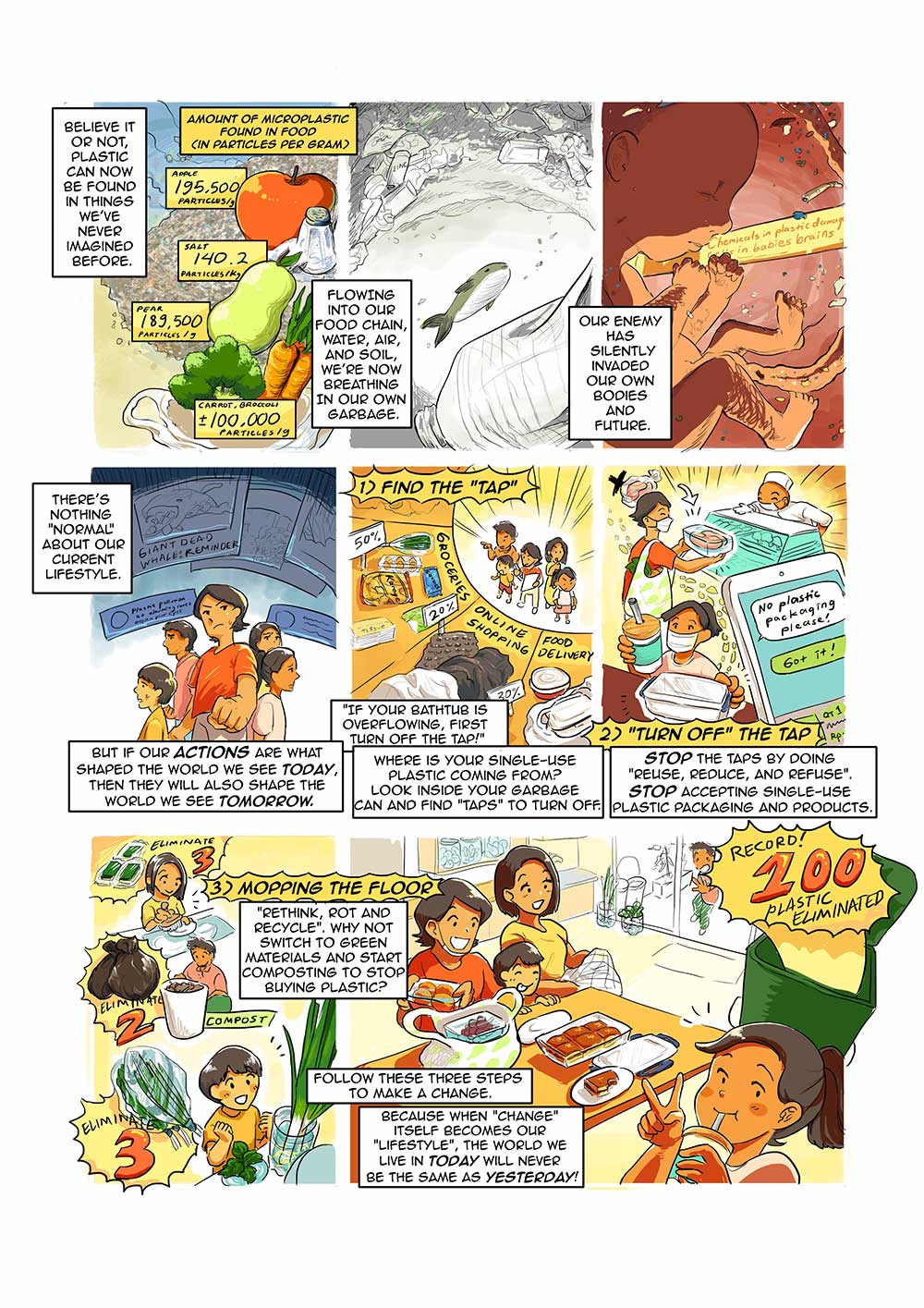Now, we live in a world where it's normal to be disconnected from nature. What we buy, the way we package things, are all designed for speed, comfort and ease - but at the cost of contaminating the environment. We have mass produced plastic to support a convenient lifestyle, but we forget that they never dissapeared from our system - they just become too small of a problem to see through the eye.
The truth is, there is nothing "normal" about continuing a lifestyle that we know threatens our own existence. If the livelihood we have today was brought on by what we've been doing for the past decades, then our future livelihood also depends on what we do today. What kind of lifestyle will we pass to the generation after us? Will they carry on one that protects them, or will it be one that ruins their lives?
Despite corporations being the major contributors to plastic world wide, that doesn't mean we shouldn't take responsibility on our end either. Changing what kind of products and production we demand, in other words our consumer behavior, can also push businesses to understand and prioritize the environment in response to their consumers.
Anyone can stop their own plastic pollution by changing their lifestyle, because we all have a role (#kamupunyaperan). First, by using a "plastic audit", you can find out from where and who do you get your plastic waste from. Then by following the 6Rs - reuse, reduce, refuse, rethink, rot and recycle, you can effectively shut off the flow of plastic into your household. Even small things, such as bringing your own containers when buying groceries or take out food can be a good starting point. Once more changes become a part of our lives and our households, fighting off even 100 plastic wouldn't feel impossible anymore!
